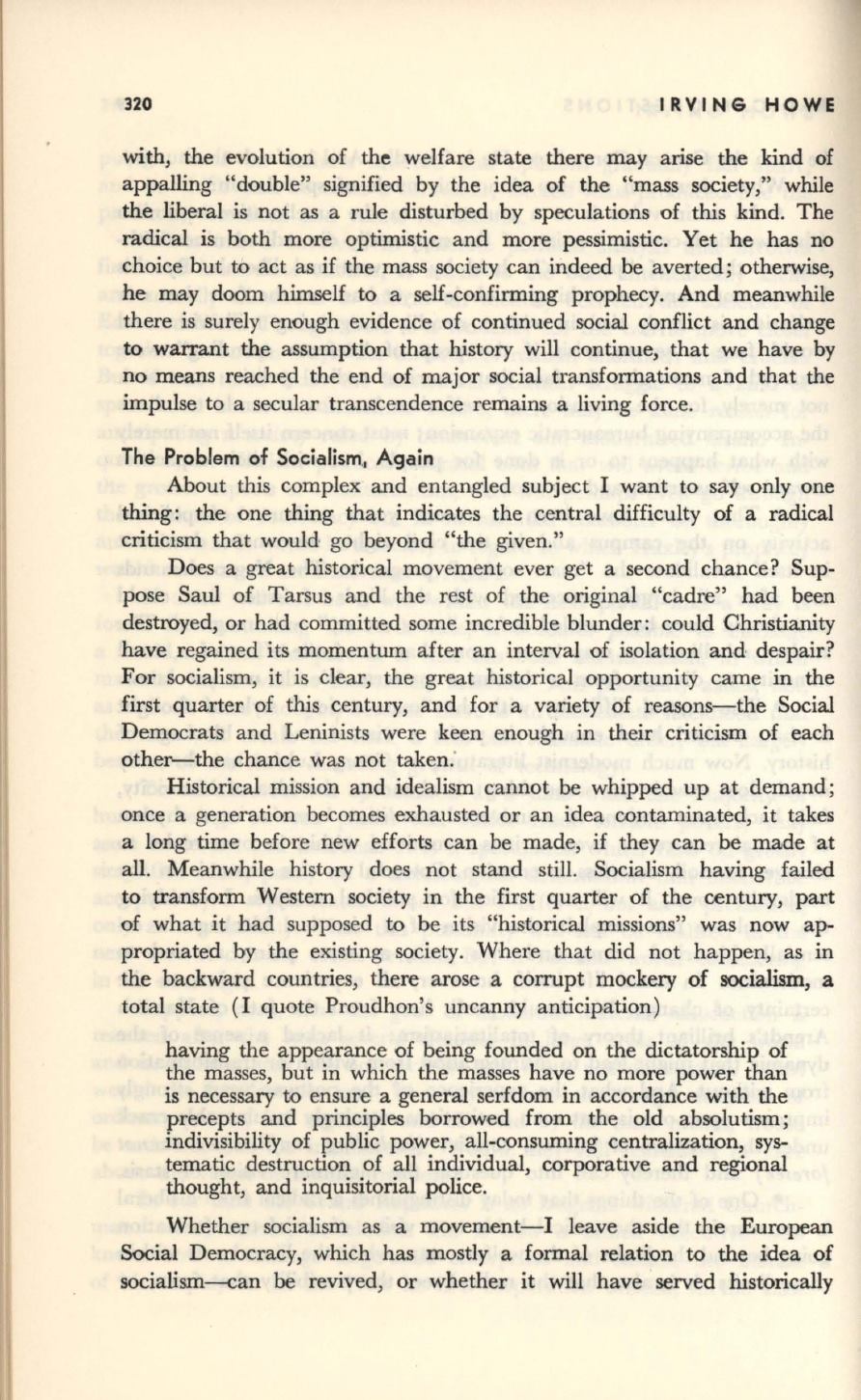
320
IRVINE;
HOWE
with, the evolution of the welfare state there may arise the kind of
appalling "double" signified by the idea of the "mass society," while
the liberal is not as a rule disturbed by speculations of this kind. The
radical is both more optimistic and more pessimistic. Yet he has no
choice but to act as if the mass society can indeed
be
averted; otherwise,
he may doom himself to a self-confirming prophecy. And meanwhile
there is surely enough evidence of continued social conflict and change
to warrant the assumption that history will continue, that we have by
no means reached the end of major social transformations and that the
impulse to a secular transcendence remains a living force.
The Problem of Socialism, Again
About this complex and entangled subject 1 want to say only one
thing: the one thing that indicates the central difficulty of a radical
criticism that would go beyond "the given."
Does a great historical movement ever get a second chance? Sup–
pose Saul of Tarsus and the rest of the original "cadre" had been
destroyed, or had committed some incredible blunder: could Christianity
have regained its momentum after an interval of isolation and despair?
For socialism, it is clear, the great historical opportunity came in the
first quarter of this century, and for a variety of reasons-the Social
Democrats and Leninists were keen enough in their criticism of each
other-the chance was not taken:
Historical mission and idealism cannot
be
whipped up at demand;
once a generation becomes exhausted or an idea contaminated, it takes
a long time before new efforts can be made, if they can
be
made at
all. Meanwhile history does not stand still. Socialism having failed
to transform Western society in the first quarter of the century, part
of what it had supposed to be its "historical missions" was now ap–
propriated
by
the existing society. Where that did not happen, as in
the backward countries, there arose a corrupt mockery of socialism, a
total state (I quote Proudhon's uncanny anticipation)
having the appearance of being founded on the dictatorship of
the masses, but in which the masses have no more power than
is necessary to ensure a general serfdom in accordance with the
precepts and principles borrowed from the old absolutism;
indivisibility of public power, all-consuming centralization, sys–
tematic destruction of all individual, corporative and regional
thought, and inquisitorial police.
Whether socialism as a movement-I leave aside the European
Social Democracy, which has mostly a formal relation
to
the idea of
socialism-can
be
revived, or whether it will have served historically


